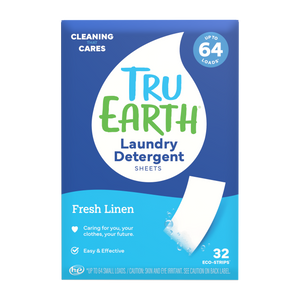Often overlooked in our daily routines, shower curtains play a significant role in maintaining bathroom hygiene and aesthetics. The material of your shower curtain significantly impacts its cleaning ease and overall durability.
This guide will explore various shower curtain materials, shedding light on their cleaning requirements, benefits, and potential drawbacks. By understanding the characteristics of different materials, you can decide which type of shower curtain suits your lifestyle and cleaning preferences.

Cotton Curtains: A Classic Choice
Cotton shower curtains are a popular and classic choice for many households. The natural fibers are breathable, providing a pleasant environment in your shower space. One of the main advantages of cotton is its machine-washable nature.
To clean a cotton curtain, simply toss it in the washing machine with a mild detergent. However, remember that cotton curtains may wrinkle, and ironing might be necessary to restore a smooth appearance.
Vinyl Curtains: Water-resistant and Low-Maintenance
Vinyl shower curtains are widely recognized for their water-resistant properties, making them a practical option for preventing water splashes and leaks. Cleaning vinyl curtains is a breeze – just wipe them down with a damp cloth or sponge.
A mild soap and water mixture should do the trick for more stubborn stains. The water-resistant nature of vinyl also inhibits mold and mildew growth, adding to the overall cleanliness of your bathroom.
Polyester Curtains: Durable and Quick-Drying
Polyester shower curtains are valued for their durability and quick-drying capabilities. Polyester is a synthetic material that resists mold and mildew, making it an excellent choice for humid bathroom environments.
Cleaning polyester curtains is simple – toss them in the washing machine with a mild detergent. The quick-drying feature is incredibly convenient for those seeking an efficient and time-saving cleaning routine.
Nylon Curtains: Lightweight and Resilient
Nylon shower curtains combine lightweight convenience with resilience. Nylon is resistant to wrinkles and can be machine-washed for easy maintenance.
Additionally, nylon curtains often come with a water-repellent coating, further enhancing their resistance to moisture. The lightweight nature of nylon makes it easy to handle during cleaning, ensuring a hassle-free experience for users.
PEVA Curtains: Eco-Friendly and Hassle-Free
PEVA, or polyethylene vinyl acetate, is an eco-friendly alternative to traditional PVC curtains. PEVA curtains are chlorine-free and lack the solid chemical odor associated with PVC. Cleaning PEVA curtains is straightforward – a wipe with a damp cloth or sponge will usually suffice.
You can hand wash or machine wash them for a more thorough cleaning. The eco-friendly and low-maintenance features make PEVA curtains an attractive option for environmentally conscious consumers.
Silk Curtains: Luxurious, Yet Delicate
Silk shower curtains bring a touch of luxury to your bathroom, but they require delicate care. Due to the fragile nature of silk, it's crucial to follow specific cleaning instructions provided by the manufacturer.
Generally, silk curtains may need to be dry-cleaned, and using water or harsh chemicals can damage the fabric. While silk adds a luxurious aesthetic, it's essential to consider the maintenance challenges it presents.
Cleaning Tips for Various Materials
Regardless of the material, incorporating regular cleaning habits can prolong the life of your shower curtain. Here are some general tips:
Routine Maintenance: Periodically wipe down your shower curtain with a damp cloth or sponge to prevent the buildup of soap scum and grime.
- Proactive Stain Removal: Attend to stains promptly to prevent them from becoming deeply embedded. Most materials respond well to gentle cleaning solutions.
- Cleaning Curtains with Tru Earth's Laundry Detergent Strips: Opting for a sustainable approach to curtain cleaning, Tru Earth's laundry detergent strips provide an eco-friendly alternative. Begin by dissolving a strip in warm water, allowing for a concentrated cleaning solution.
Pre-treat stains gently if needed, then soak the curtains, ensuring thorough saturation. The detergent's powerful formula effectively lifts dirt and grime. After a gentle agitation, rinse the curtains thoroughly to remove any residue.

- Ventilation: Ensure proper bathroom ventilation to reduce humidity and discourage mold and mildew growth on your shower curtain.
- Use a Liner: Adding a shower curtain liner can provide extra protection against water splashes and improve cleaning.
- Follow Manufacturer's Instructions: Always adhere to the care instructions provided by the manufacturer to maintain the integrity of the curtain material.
Your Key to Effortless Cleaning
Selecting a shower curtain material that aligns with your lifestyle and cleaning preferences allows you to enjoy a clean and aesthetically pleasing bathroom without unnecessary maintenance challenges.
Whether you prefer the classic appeal of cotton or the water-resistant qualities of vinyl, understanding the characteristics of different materials empowers you to make an informed decision for a hassle-free shower curtain experience.

